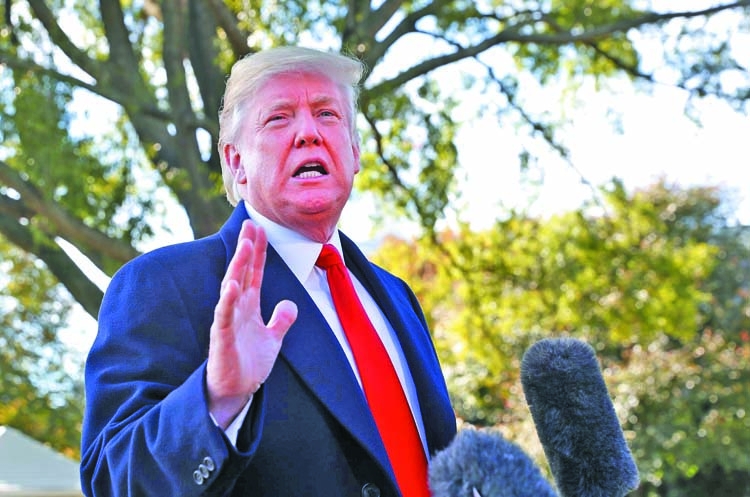'Transgender policy seeks to protect the country'

US President Donald Trump said on Monday that transgender issues were in flux and he aims to protect the country after a report that his administration was considering defining gender as male or female based on genitalia at birth drew widespread condemnation.
"We have a lot of different concepts right now. They have a lot of different things happening with respect to transgender right now," Trump said amid a protest outside the White House and outpouring of criticism on social media about the proposal.
Asked about a campaign promise to protect the LGBT community, Trump said: "I'm protecting everybody. I want to protect our country."Under a proposal first reported by the New York Times on Sunday, the Trump administration would narrow the definition of gender to male or female at birth and it would be unchangeable later in life.
The move would remove recognition of and protections for transgender people under U.S. civil rights laws promoted by the prior administration of President Barack Obama in health care, schools and the military.
About 1.4 million U.S. adults identify as transgender, according to a 2016 estimate by the Williams Institute, a research center at UCLA Law School focused on sexual orientation and gender identity law and public policy.
The reported proposal comes little more than a week after New York City created a gender-neutral "X" option for birth certificates, joining California, Oregon, Washington state and New Jersey in offering a third gender category on the government-issued identity documents.
Medical experts said on Monday that defining gender based on genitalia at birth is scientifically inaccurate and may harm patients' health. Dr. Joshua Safer, executive director of Mount Sinai Hospital's Center for Transgender Medicine and Surgery, said the Trump administration's definition is "not consistent with current western medicine or science in terms of how we actually operate or define sex of individuals."
"Sex of individuals is not correlated always with their genitals at birth, or with their chromosomes," said Safer, who also serves as president of the United States Professional Association for Transgender Health.
Most transgender people live with a profound sense that the gender assigned to them at birth was wrong and transition to the opposite sex, while others live a non-binary or gender-fluid life.
